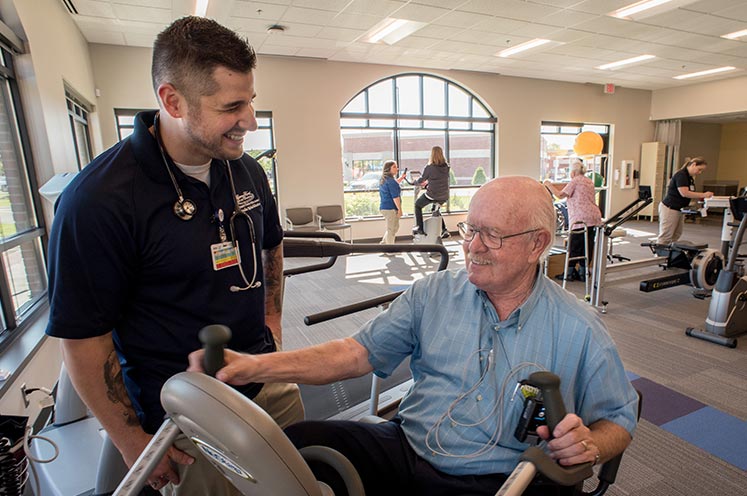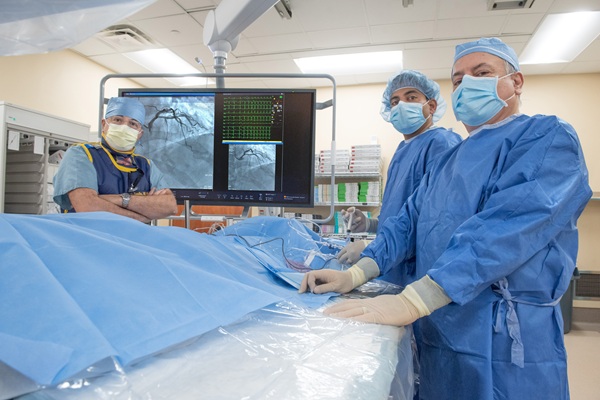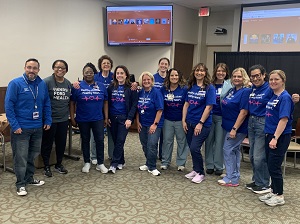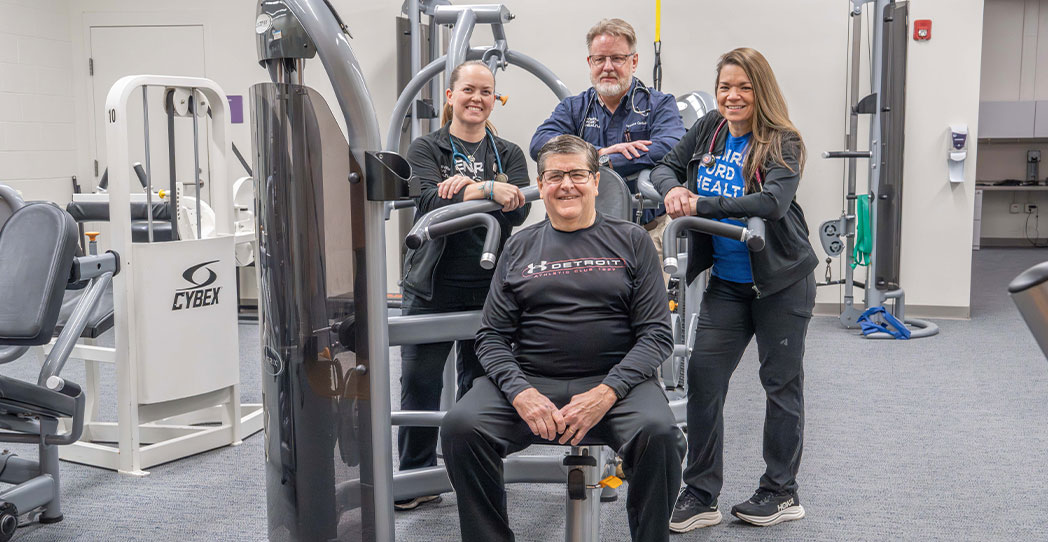
Cardiac Rehabilitation
"The Confidence Course"
You’ve just been discharged from the hospital after a serious issue with your heart, and you’re a little apprehensive about what happens next.
Henry Ford’s Cardiac Rehabilitation program, also known as “The Confidence Course,” is designed for patients like you who were recently discharged from the hospital following a heart attack, coronary angioplasty or heart surgery, or with a condition like stable angina and heart failure.
The primary goal for cardiac rehabilitation is to help you restore optimal physical, emotional, and economic wellbeing through education and exercise.
Physicians, clinical exercise physiologists, registered dietitians, registered nurses and behavioral health specialists work in cooperation with your doctor to provide structured education and individualized ECG (electrocardiograph) monitored exercise.
This program, designed for you, not only helps improve your heart and muscular function, but also reduces your risk of suffering another heart problem in the future. Patients recovering from heart problems typically attend three sessions per week for up to 12 weeks.
What to Expect from Your Cardiac Rehab Appointment

What kinds of rehab are available?
Here’s how your cardiac rehabilitation will proceed:
- Phase I cardiac rehabilitation begins in the hospital as you recover from your heart-related problems. You’ll receive information about nutrition, exercise and other aspects of a healthy recovery and perform moderate physical activities.
- Phase II cardiac rehabilitation provides outpatient education to improve your cardiac health and includes individualized ECG (electrocardiograph)-monitored and medically supervised exercise programs.
- Phase III cardiac rehabilitation, Henry Ford’s PREVENT program (prevention through exercise and education), establishes heart-healthy lifestyles for patients like you by combining medically supervised exercise with education for patients with all types of health concerns.
Medicare and Health Alliance Plan (HAP) usually cover between 80 and 100 percent of the program’s cost. Other health insurers may cover between 20 and 100 percent.
Show me


Henry Ford Health Leading the Way in Safer Approach to Heart Procedures
Henry Ford Health is outpacing a national trend toward radial access on percutaneous coronary interventions. More than 75% of the health system’s PCIs are performed threading a catheter through the wrist instead of the groin, compared to a national average of 57.5% in 2022, according to research.

Groundbreaking Global Trial Redefines Stroke Prevention for High-Risk Patients

Healthy Heart Event Draws Nearly 1,000 Across Region for Free Screenings

Cholesterol Levels Increase After Menopause. Here’s How To Protect Your Heart
Estrogen changes during menopause can impact your cholesterol levels. During this time, make sure you are working with your provider to manage your health.

The Psychological Impact Of A Heart Attack
While anxiety, depression and PTSD are all normal mental health changes that can develop after you have a heart attack, many people aren't prepared for how these new feelings might impact their recovery.

Is Being In Love Good For Your Heart?
Need a good reason to fall in love? Being in love has a positive impact on your heart - relaxing blood vessels and improving blood pressure.

How Laughter Benefits Your Heart Health
Not only does it feel good to laugh, but laughter is proven to have positive effects on your mental health, immune system and heart health.
.svg?iar=0&hash=F6049510E33E4E6D8196C26CCC0A64A4)

/hfh-logo-main--white.svg?iar=0&hash=ED491CBFADFB7670FAE94559C98D7798)

